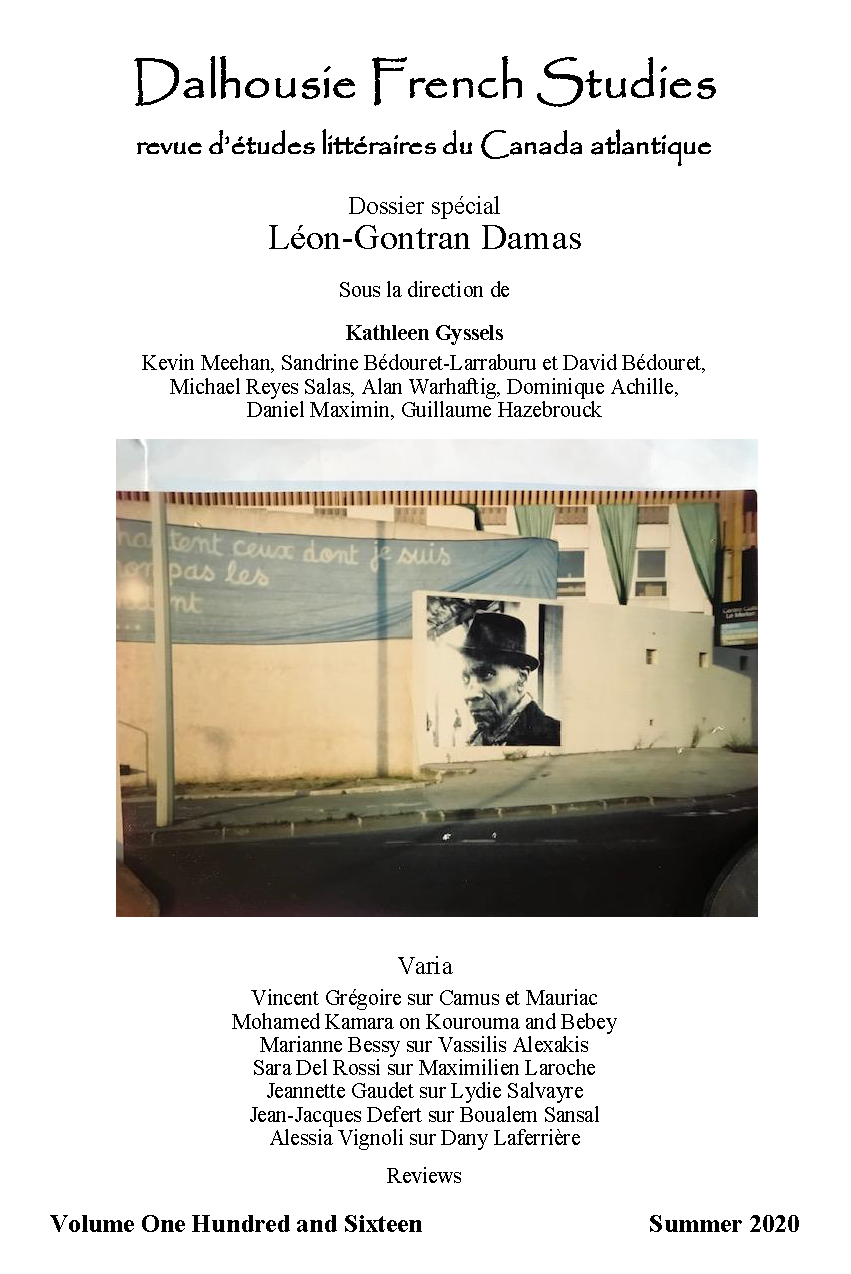Masquereading Léon Damas' Mine de riens
Résumé
En Guyane, le « macoumé » est le terme injurieux pour désigner l‘homosexuel, supposé ou prouvé. Dans un long passage de Black-Label, le poète faisait rimer dans un portrait de lui en « Bel enfant de choeur » les roses « miraculées, immaculées, matriculées » (BL 38). J‘y ai toujours entendu le terme mis entre guillemets : « macoumé ». Partant de Masquereading (Marie-Hélène Bourcier) et de l‘homotextualité (Jean-Pierre Rocchi), je propose une nouvelle approche de la poésie impudente et immoraliste (Gide lança Damas, après tout). Il aura été un « maskilili », diablotin amérindien qui n‘est jamais là où on l‘attend, déjouant les attentes et surtout chaussé de travers.
In French Guiana, “macoumé” is the offensive term for the supposedly or proven homosexual. In a long passage from Black-Label, the poet rhymed, in a self-portrait as the “Beautiful Choir Child”, the roses “miraculées, immaculées, immatriculées” (BL 38). I have always heard the term put in quotation marks: “macoumé.” Starting from the concepts of “Masquereading” (Marie-Hélène Bourcier) and “homotextuality” (Jean-Pierre Rocchi), I propose a new approach to this impudent and immoralist (Gide launched Damas, after all) poetry. He will have been a “maskilili”, a Native American devil who is never where he is expected to be, defying expectations and above all putting his right shoe on his left foot.


